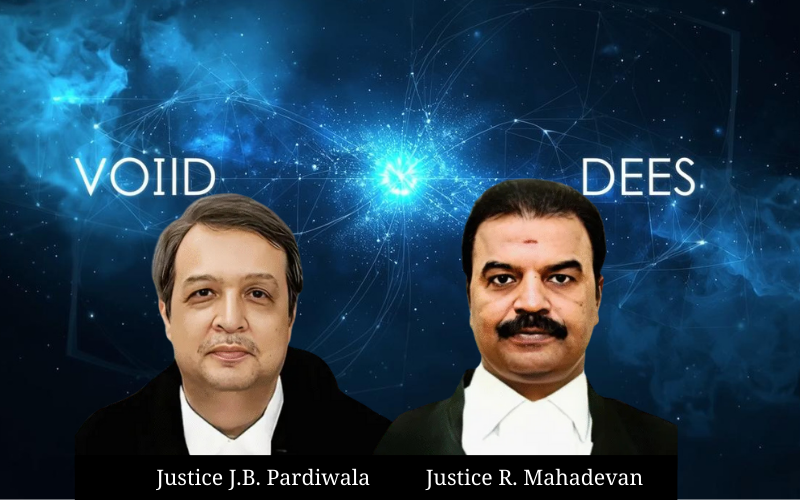Void property transactions do not require cancellation suits under Article 59 of Limitation Act
The Supreme Court of India has upheld a decision by the First Appellate Court regarding a contentious land sale transaction alleged to be fraudulent and void. This ruling, passed in the case of Shanti Devi v. Jagan Devi (Civil Appeal No. 11795 of 2025), has clarified the applicability of Articles 59 and 65 of the Limitation Act, 1963, in cases involving disputed sale deeds.
The case revolves around a civil suit filed by the plaintiffs, who claimed ownership of one-third of a parcel of agricultural land in Gurgaon. They alleged that a sale deed executed in 1973 by Ram Saran in favor of the defendant, Shanti Devi, was fraudulent and void. The trial court initially dismissed the plaintiffs' suit, ruling that it was barred by limitation, as it was filed more than 11 years after the execution of the sale deed.
Upon appeal, the First Appellate Court overturned the trial court's decision, favoring the plaintiffs and ruling that the transaction was void and did not affect the plaintiffs' title to the land. The Appellate Court held that Article 65 of the Limitation Act, which provides a 12-year limitation period for suits based on the title of property, governed the case instead of Article 59, which prescribes a three-year limitation for suits seeking the cancellation of a fraudulent instrument.
The High Court upheld the First Appellate Court's decision, asserting that the sale deed was void ab initio as it lacked consideration and was executed fraudulently. Therefore, it did not require a cancellation suit under Article 59, as the transaction was deemed non-existent in the eyes of the law. Consequently, the 12-year limitation period under Article 65 applied, and the suit was filed within this time frame.
The Supreme Court of India, in its judgment dated September 12, 2025, agreed with the High Court and First Appellate Court that the transaction was void ab initio. The Court emphasized that a document void from the outset does not require a cancellation suit under Article 59 of the Limitation Act, as the transaction is already a nullity. Thus, the suit for possession based on title was governed by the 12-year limitation period specified in Article 65.
The apex court also reiterated the principle from the case of Prem Singh v. Birbal, wherein it was held that Article 59 applies only to fraudulent transactions that are voidable, not those that are void. In cases where a sale deed is void due to fraudulent misrepresentation regarding the character of the document, as opposed to its contents, the transaction is considered void ab initio. Therefore, a separate suit for cancellation is unnecessary, and the extended limitation period under Article 65 applies.
The Supreme Court concluded that the High Court erred in its interpretation of the limitation articles, but the suit was nonetheless filed within the 12-year limitation period as per Article 65. Thus, the appeal was dismissed, and the lower courts' judgments were upheld, affirming the plaintiffs' ownership of the disputed land.
This decision sets a significant precedent in Indian property law by clarifying the application of limitation laws concerning fraudulent and void property transactions, emphasizing that void transactions do not require cancellation suits under Article 59. The ruling underscores the importance of evidence in proving the fraudulent nature of a transaction and confirms the extended limitation period for suits based on title under Article 65.
Shanti Devi v. Jagan Devi, (SC) : Law Finder Doc id # 2777665




